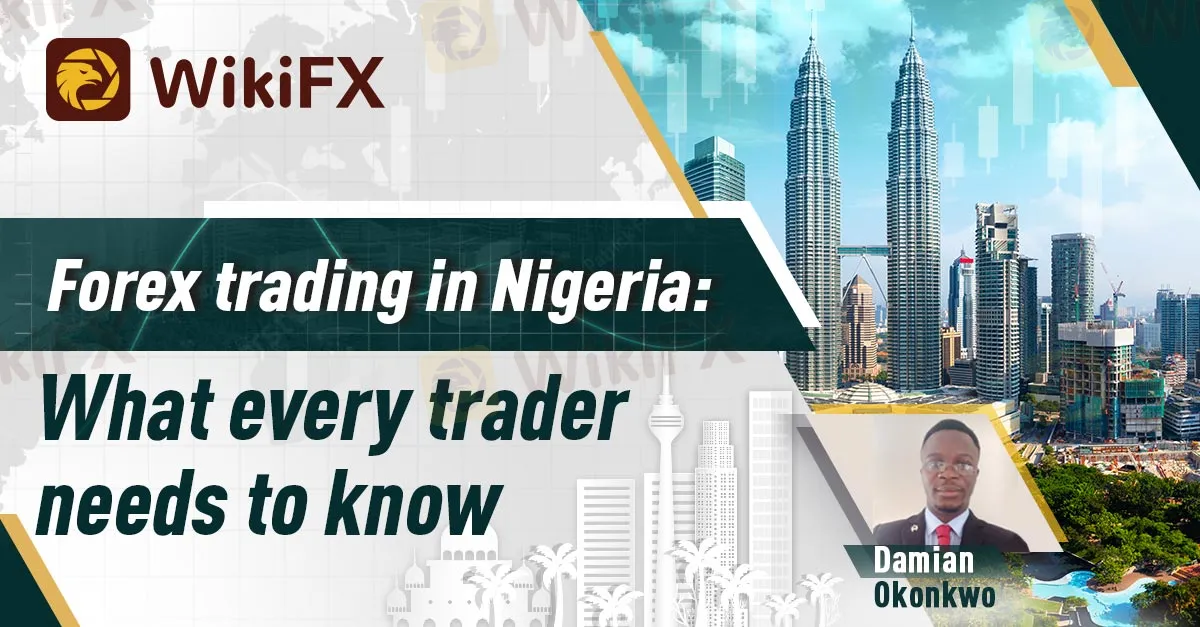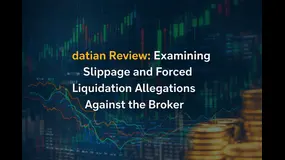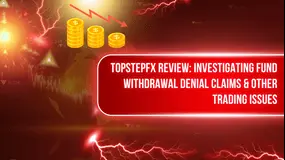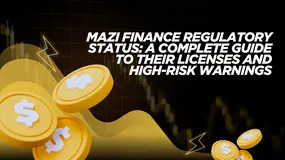WikiFX Valentine's Message | Trade Safely, Together Every Step of the Way
In the Forex Market, Trust Is Not a Promise — It’s Verified Through Safety, Transparency, and Support
简体中文
繁體中文
English
Pусский
日本語
ภาษาไทย
Tiếng Việt
Bahasa Indonesia
Español
हिन्दी
Filippiiniläinen
Français
Deutsch
Português
Türkçe
한국어
العربية
Abstract:Forex trading is a popular investment vehicle that allows traders to profit from the fluctuations in exchange rates between different currencies. The foreign exchange market is the largest and most liquid financial market in the world, with an estimated daily trading volume of over $6 trillion. In Nigeria, forex trading has become increasingly popular in recent years, with many individuals and businesses seeking to take advantage of the opportunities offered by this dynamic market. In this article, we will explore what every forex trader in Nigeria needs to know to succeed in the forex market.

By: Damian Okonkwo

Forex Trading Basics for Beginners
Forex trading is a popular investment that involves buying and selling different currencies to make profits from market volatility. The most commonly traded currencies in the forex market include the US Dollar, Euro, British Pound, Japanese Yen, Swiss Franc, Canadian Dollar, and Australian Dollar. Forex trading is typically done through a broker or trading platform that provides access to the market and allows traders to execute trades.
Forex traders make money by buying currencies when they are undervalued and selling them when their value increases. The exchange rate between two currencies is determined by a range of factors, including interest rates, economic growth, political stability, and geopolitical events. Traders use a range of technical and fundamental analysis tools to predict market trends and identify trading opportunities.
Regulation of Forex Trading in Nigeria
The Central Bank of Nigeria (CBN) alongside the Securities and Exchange Commission (SEC) are the two important bodies that regulate forex trading in Nigeria. While the CBN is responsible for regulating the forex market and ensuring that trading is conducted transparently and fairly. The SEC regulates forex brokers and trading platforms, ensuring that they operate following Nigerian laws and regulations.
In Nigeria, forex trading is legal and accessible to both individuals and businesses. However, there are some restrictions on forex trading, particularly for individuals. For example, individuals are not allowed to trade forex using their domiciliary accounts or credit cards, and they are required to have a minimum deposit of $1,000 in their trading account. Businesses, on the other hand, are allowed to trade forex using their corporate accounts.
Choosing a Forex Broker
Choosing a regulated broker is an important factor considered by traders today. In Nigeria, there are many forex brokers to choose from, each with its strengths and weaknesses. When selecting a forex broker, traders should consider a range of factors, including the broker's reputation, trading platform, fees and commissions, customer support, and regulatory compliance.
It is also important to consider the type of trading platform provided by the broker. Most forex brokers offer either a web-based platform or a downloadable trading platform. A web-based platform is accessed through a web browser and does not require any software installation, while a downloadable platform is installed on the trader's computer. Traders should also consider the availability of mobile trading apps, as this allows them to access the market on the go.
Risk Management
Forex trading is one of the most risky investments today. Often, the risks could be so high that it can lead to significant losses if not managed properly. Therefore, risk management is a crucial aspect of successful forex trading. Traders should set stop-loss orders to limit their losses in the event of a market downturn. They should also avoid over-leveraging their trades, as this can increase the risk of losses.
Traders should also have a solid understanding of technical and fundamental analysis to identify trading opportunities and minimize risks. Technical analysis involves the use of charts and technical indicators to analyze market trends and identify trading opportunities. While fundamental analysis involves examining the economic and political factors that can affect a currency pair.
Conclusion
Forex trading is a lucrative investment opportunity that can provide traders with substantial profits if done correctly. In Nigeria, forex trading is legal and regulated, but traders should be aware of the restrictions and requirements imposed by the CBN and SEC. Choosing the right forex broker, managing risk, and having a solid understanding of market analysis are all essential for successful forex trading.

Disclaimer:
The views in this article only represent the author's personal views, and do not constitute investment advice on this platform. This platform does not guarantee the accuracy, completeness and timeliness of the information in the article, and will not be liable for any loss caused by the use of or reliance on the information in the article.

In the Forex Market, Trust Is Not a Promise — It’s Verified Through Safety, Transparency, and Support

Did you face losses due to a sudden change in the trading price on the datian platform? Were your transaction records deleted by the Hong Kong-based forex broker? Did the broker liquidate your trading account multiple times despite not reaching the stage where it mandated this move? Have you experienced heavy slippage on the trading platform? Concerned by these issues, traders have complained about the broker online. We will let you know of these with attached screenshots in this datian review article. Keep reading!

Did you face constant rejections of your fund withdrawal applications by TopstepFX? Have you been denied withdrawals in the name of hedging? Did you witness an account block without any clear explanation from the forex broker? There have been numerous user claims against TopstepFX regarding its withdrawals, payout delays and other issues. In the TopstepFX review article, we have investigated the top complaints against the US-based forex broker. Keep reading!

When choosing a broker, the first question is always about safety and legitimacy. Is my capital safe? For Mazi Finance, the answer is clear and worrying: Mazi Finance is an unregulated broker. While the company, MaziMatic Financial Services LTD, is registered in the offshore location of Saint Lucia, this business registration does not replace strong financial regulation from a top-level authority. Independent analysis from regulatory watchdogs shows a very low trust score, made worse by official warnings from government financial bodies and many user complaints about serious problems. This article provides a clear, fact-based analysis of the Mazi Finance regulation status. Our goal is to break down the facts and present the risks clearly, helping you make an informed decision and protect your capital.
